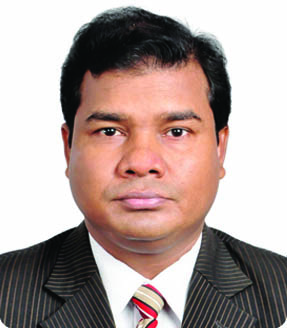Tk 7.97lakh crore budget for FY 2024-25 proposed
Taming inflation, boosting reserves key focus

GDP growth target 6.75 pc
Target to contain inflation at 6.5pc
Budget deficit Tk 2.56 lakh crore
Revenue target Tk 5.41 lakh crore
Tax-free income limit: Tk 3.5 lakh for individual taxpayers
Corporate tax rates 25 percent
The national budget of Tk 7.97 lakh crore for the fiscal year 2024-25 was placed in Parliament on Thursday with key focus on curbing inflation and commodity prices, boosting revenue and foreign currency reserves and bringing time-befitting reforms in the financial sector.
The budget also aimed to implement the vision of 'Smart Bangladesh' through the integration of cutting-edge technologies like artificial intelligence (AI) and put emphasis on four key pillars: Smart Citizens, Smart Economy, Smart Government, and Smart Society.
The budget was placed at a time when the country is facing various challenges, including high inflation, depletion of foreign currency reserves, economic slowdown and unemployment.
Now the government will have to address these major challenges immediately through budgetary allocations for different sectors and fiscal measures.
To combat inflation, the government aims to reduce budget expenditure, discourage important expenditures and go for austerity measures besides applying monetary tools, the finance minister said while placing the proposed budget for the next fiscal year.
"We will follow fiscal consolidation as well as reduction of budget deficit, we will continue belt-tightening measures, even if on a limited scale for the upcoming fiscal year," he said. Alongside curbing inflation, the budget for this fiscal year
has been formulated with an emphasis on ensuring necessary funding for government priority sectors such as poverty alleviation, job creation, social safety net programs, education, health, agriculture, and climate change impact mitigation, thereby prioritizing future development trajectories.
The government is hoping to contain inflation at 6.5 percent in the next fiscal year (FY25) with the help of the policies and strategies adopted by the government.
"We are expecting that the inflation rate will come down to 6.5 percent in the next fiscal year as an outcome of the policy-strategies that we have adopted," said the Finance Minister.
He said Bangladesh has already undertaken contractionary monetary policy in line with steps taken by other countries in the world to curb inflation.
To fight inflation, the Finance Minister said various steps are being taken to make the monetary policy a successful one. At the same time, supportive policies are being implemented in the fiscal sector as well.
He said government support like Family Card and OMS Programmes are being strengthened to protect the common people from adversities arising from high inflation.
He said the Russia-Ukraine war that began in 2022 pushed the price of crude oil up to US$120 per barrel in the world market in June that year. As a result, he said the prices of essential goods including wheat and fertilizer sky-rocketed.
"This instability in the commodity market of the world pushed up inflation in all countries including Bangladesh. The inflation rate reached nine percent in the USA during June 2022. The concern for the disruption of the supply chain at the beginning of Ukraine-Russia war dispelled to a large extent later," Ali added.
Although the disruption in the supply chain in the domestic market is the main reason for spiralling inflation, Ali said the other reason is the devaluation of Taka against foreign currency.
Rebuilding foreign exchange reserves will be challenging in the coming months as the high interest rate in advanced countries may continue for a while, according to the Medium Term Macroeconomic Policy Statement placed with the proposed budget for FY25.
"The high interest rates prevailing in advanced economies is one of the major reasons for the dwindling foreign exchange reserves in Bangladesh," reads the statement placed in the parliament.
“This high interest rate regime in advanced countries may continue for a while and therefore, it will be challenging to increase reserves in the coming months," according to the statement.
In his budget speech, the finance minister said, "When the impact of Covid-19 slowed down in 2021-2022, businesses gathered momentum. As a result, the trade deficit exceeded over $35 billion, which essentially created pressure on foreign exchange reserves and the exchange rate.”
"The gross foreign exchange reserves stood at $39.6 billion in July 2022-2023, which went down to $24.22 billion in May this year. To stabilise the foreign exchange market, the Bangladesh Bank had to sell off approximately $22 billion from reserves. This also caused the decline of reserves.
The government plans to raise around 85.4 percent of its domestic funding to meet the budget deficit through borrowing from the banking sector.
In the proposed budget for FY 2024-25, Finance Minister announced that the government needs to collect a total of Tk 2.56 lakh crore from both foreign and domestic sources to cover the budget shortfall.
Of this amount, Tk 95,100 crore will come from foreign grants and loans, while Tk 1.61 lakh crore will be sourced domestically.
Notably, the government aims to borrow Tk 1.37 lakh crore from the banking sector to address the budget deficit.
According to Bangladesh Bank data, the government's net borrowing from the banking sector amounted to Tk 45,557 crore from last July to April 22 this year, after repaying Tk 19,874 crore to the central bank.





